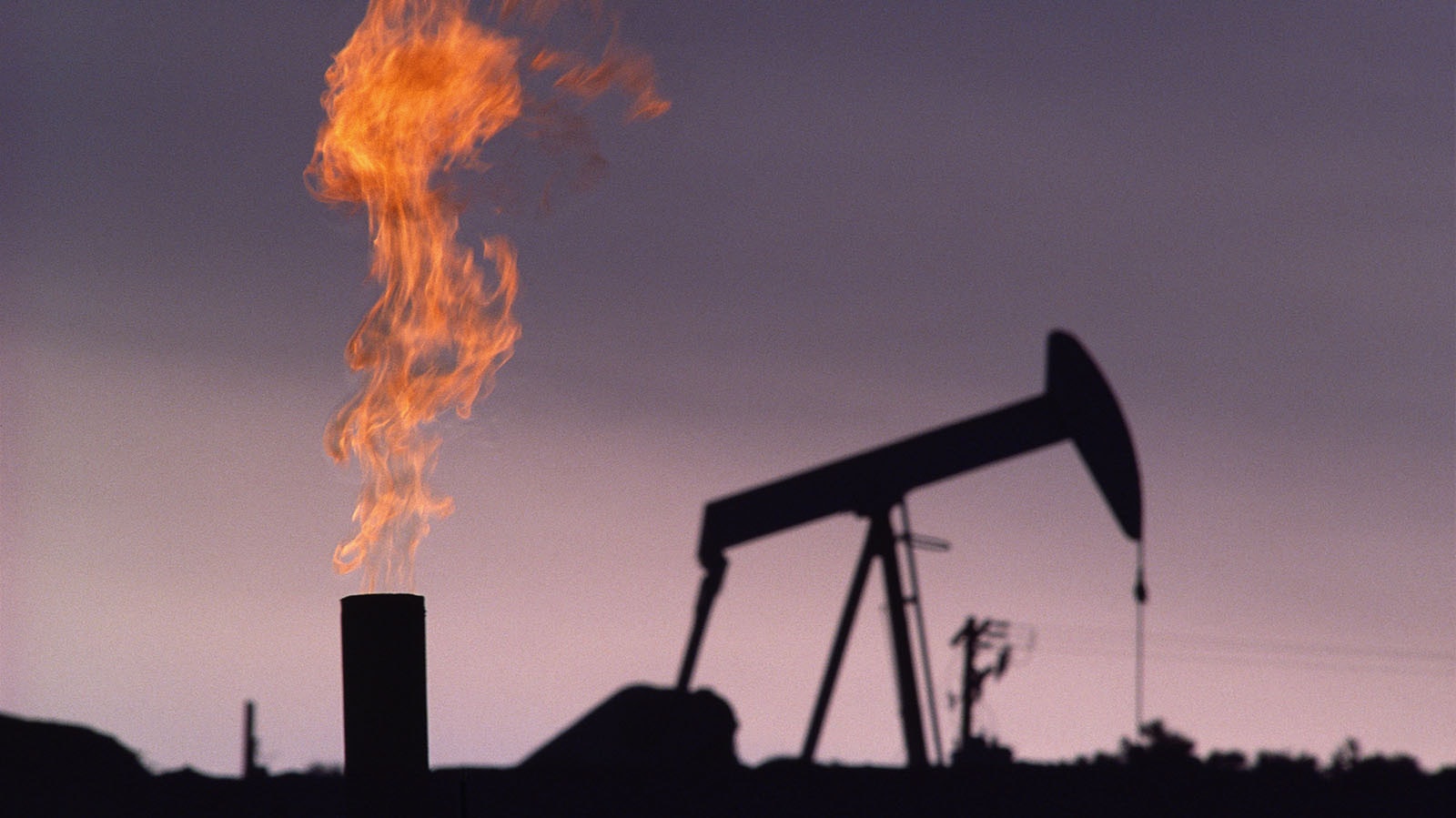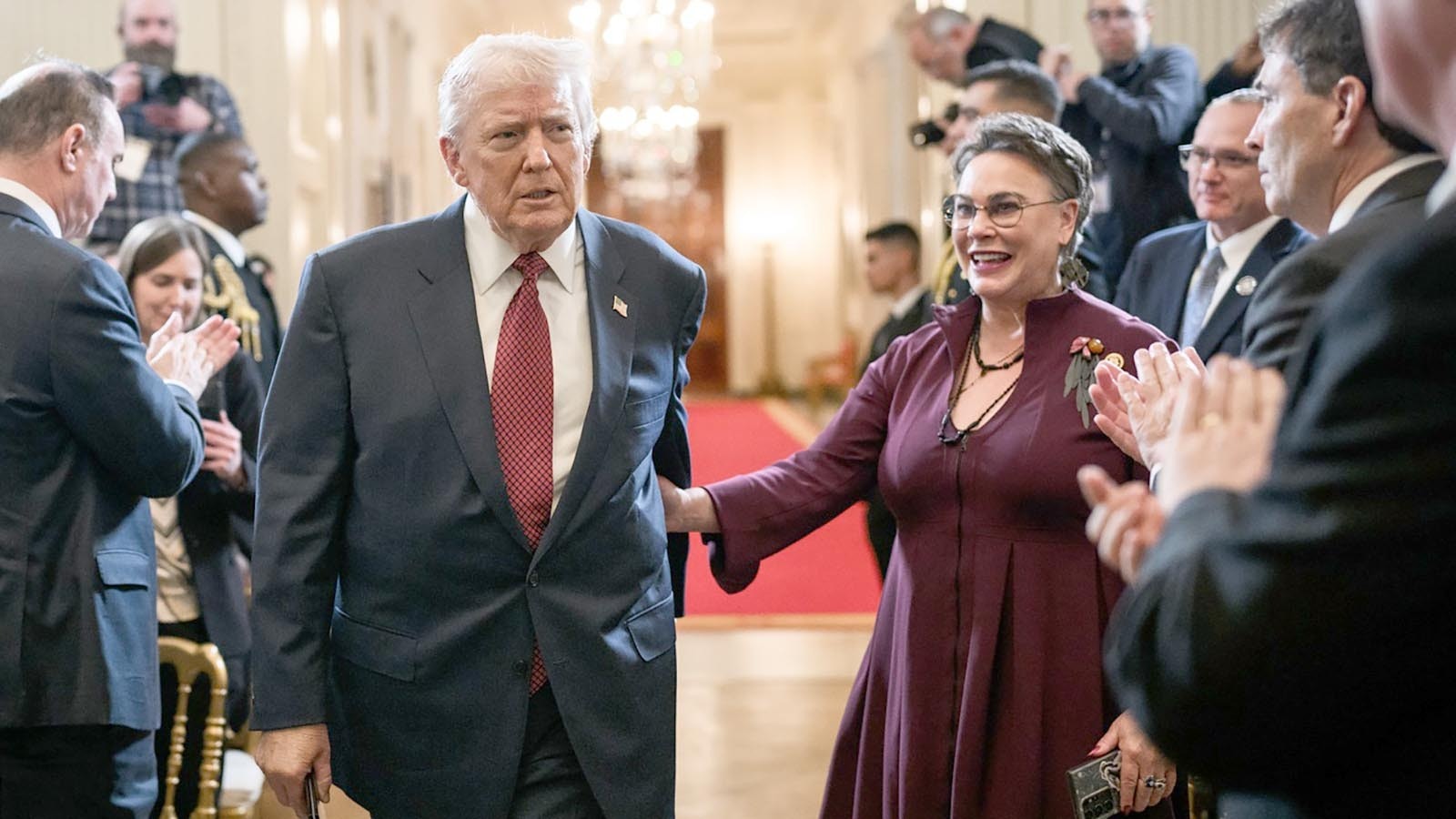Editor’s note: The headline on this story has been changed to take out a reference to efforts to impact Wyoming lease sales as “sabotage.”
Wyoming Gov. Mark Gordon has signed an emergency order to implement changes in next week’s state-led oil and gas lease auction to keep environmental activist groups from driving up bids and taking energy-rich properties out of the hands of developers.
The issue arose last year after Casper-based Kirkwood Oil & Gas LLC went up against an anonymous bidder with an environmental activist group based in Wyoming, the Lander-based Wyoming Outdoor Council, a statewide conservation advocacy group.
The identity of the anonymous bidder was disclosed after the sale.
Neither a representative with Kirkwood nor Alec Underwood, program director for the Wyoming Outdoor Council, was immediately available for comment.
The emergency order grew out of legislation earlier this year that the Petroleum Association of Wyoming supported, said Peter Obermueller, president of the group.
The Wyoming Outdoor Council’s bidding war against Kirkwood “triggered our interest in nipping this in the bud before somebody with significant resources decided to wreak havoc” in the Cowboy State, Obermueller said.
Activists Bid Then Bail
The new law requires the Wyoming Office of State Lands and Investments, which runs the auction three times a year, to determine a qualified bidder.
It’s hoped that will ferret out "unqualified bidders, people or entities without any intention of producing oil and gas" so they can’t drive up bids just to make a lease more expensive, Obermueller told Cowboy State Daily.
Gordon’s emergency order applies to the July 8-10 OSLI oil and gas lease auction.
OSLI’s Dianna Wolvin, who is involved in the oil and gas auction, was unavailable for comment.
Obermueller explained that OSLI already has the authority to reject nonqualified bidders once an auction is completed.
However, financial problems arose with this past bidding war scenario when the second-place bidder, in this case Kirkwood, won the parcel at a higher-than-expected price after the activist group bailed out.
“They’d (OSLI) give it to the second-place bidder at the amount after the bidding was over,” Obermueller said. “So, if I’m the oil and gas operator, and you’re the environmental activist group and you bid me up 15 times, I’d have to pay that highest amount.”
Fixed A Flaw
The bidding process was flawed in Wyoming and needed fixing, Obermueller said.
“Our contention was, and the Legislature agreed with us, that if you’re an unqualified bidder, then your bids shouldn’t count,” he said.
Obermueller said that a similar practice erupted years ago with anti-grazing groups who were opposed to OSLI leases on some state-owned land that activist groups wanted a say on.
The bigger worry for Obermueller’s trade group was the possibility of a billionaire like Michael Bloomberg stepping in to outbid industry oil and gas operators.
Bloomberg already has gained notoriety for pumping more than $1 billion into his “energy transition campaign” to shut down coal-fired power plants in the United States and slash gas-fired capacity in half by 2030.
“You could conceivably have a guy like Michael Bloomberg, who’s already pumping hundreds of millions of dollars into trying to end oil and gas development on public lands, come in and say, ‘Oh, look, Wyoming doesn’t have a way to stop this. Let’s just bid up all of these oil and gas operators to make leasing unpalatable, because I’ve got endless amounts of money,’” Obermueller said.
Emergency Rule
Gordon’s order relates to a notice issued for an emergency rule and is not intended to "stimulate" the July oil and gas leasing auction,” said OSLI spokeswoman Melissa DeFratis.
During the 2024 Legislature, lawmakers passed State House Bill 141, which redefined qualified bidders.
The State Board of Land Commissioners approved the rule changes at its June 6 meeting as part of its regular business, she said.
Since the auction is scheduled for July 8-10, the board also approved emergency rules to implement the changes before the auction, DeFratis told Cowboy State Daily.
The last auction held in March was considered one of OSLI’s smallest since 2017 when it offered up 121 parcels of state-owned land spanning 42,883 acres across 18 energy-rich counties.
In the auction scheduled next week, the OSLI will offer up 205 parcels of state land covering 76,161.37 acres.
The auction underscores the challenges that OSLI faces with promoting a carbon-based energy program to raise revenue, which goes to support public education, farm lending, penitentiaries and other state-funded programs.
The state earns money through the leases.
In this case, a mineral lease bonus is a one-time payment made to the mineral rights owner when the oil and gas lease is signed, in this case the state of Wyoming.
The dearth of land offered up in March hadn’t been seen since well before the COVID-19 pandemic, when the state’s oil and gas industry was hitting on all cylinders.
In 2017, Wyoming saw its biggest auction year with a total of $60.7 million collected in bonus and rental fees paid.
In that year, the single biggest auction came on 197 parcels covering 85,822 acres in which the state received more than $29.8 million in bonus and rental fees.
Pat Maio can be reached at pat@cowboystatedaily.com.





